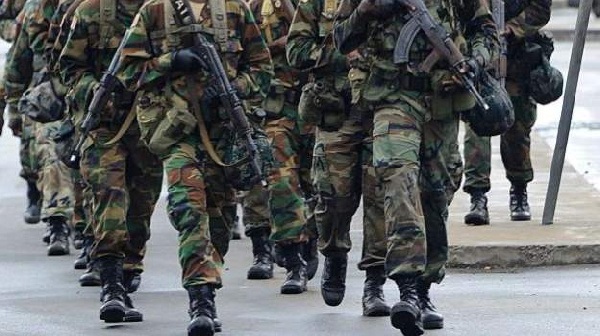Security analysts have expressed concern about the escalated activities of Islamic militants operating in the Sahel, their recent noose around the neck of Bamako, Mali, coming especially into focus.
Although the noose has been loosened somewhat, it is by no means the dropping of their objective of bringing countries they have targeted under their subjugation and ideology.
For about a month, they held as it were the city of Bamako hostage; fuel was in short supply until recently when the Malian military devised a means of escorting tankers into the nation’s capital.
So bad was the situation that France sent a depart notice to her citizens in their former territory.
The coastal parts of West Africa could also be in the sight of the militants, according to security analysts who mentioned Ghana as one of the countries likely to suffer from the activities of the militants.
For now, though it might sound distant and near impossible for Ghana to have a taste of the unwanted activities of the militants, we must take measures to ensure that we are not surprised.
It takes only two days to travel from Tamale to Bamako, all things being equal, and this shows that movement by the militants and by extension firearms would not be a challenge for the bad guys who appears to have an inexhaustible supply of ammo.
With Burkina Faso still in the woods of security uncertainty, we as a country sharing a border with that country which also shares a frontier with Mali should not tarry in beefing our security.
We are aware about the forward operating bases thought out under the previous government; knowing us as a people, the concept could suffer an unannounced scale-down, the consequences of which could be detrimental to national security.
Beefing our security should not be entirely restricted to tactical preparations but the sensitisation of citizens in border areas about their supplementary role in protecting the country against the bad guys.
As we pointed out in a previous leader, citizens living in border areas have a critical role to play in identifying persons of security interest to our country. Such persons would need the necessary education on how to cooperate with the security agencies such as the soldiers on forward observation duties and personnel of the Ghana Immigration Service, and indeed the Police.
Basic human profiling techniques of persons breaching our borders, a daily occurrence, is knowledge which should be imparted to such residents; this would go a long way in supplementing the work of security personnel performing border operations.
Traditional authorities in such areas should not be overlooked. Indeed, it is these revered personalities who should form the backbone of the involvement of border areas residents.
Periodic engagements with such important publics should be part of the terms of reference of border security managers. The recent occasional conflicts between some residents and security personnel must be stemmed because it does not make for the necessary cordial and productive relationship between the two parties.


